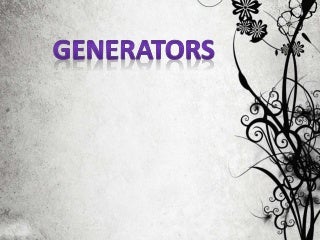If you love the outdoors and camping in the natural environment, you are aware that having a generator is vital to providing an electricity source that can allow you to enjoy your vacation. You can count on your generator to provide light, heating, and cooking, regardless of how short or long the trip. Portable generators are made to be taken on getaways or short journeys. It’s possible to charge the phone or charge your laptop traveling. It is also possible to cook breakfast. The best generator is the one that emits the least amount of noise. If you have a noisy and loud machine will only ruin your outdoor nature experience and cause a lot of annoyance to your campers. There are many factors that go into choosing the correct generator, and knowing what to do is vital. Once you have a clear idea of the choices that you’re interested in, read more about the various brands available and read the in-depth reviews to identify the best silent generators that meet your requirements and needs. It’s crucial to get more information so that you’re better prepared to make the best choice. First, you must decide about the dimensions of the generator. Generally, there are two sizes that you can discover – small and compact, and both will fit into the back of a vehicle. Small generators can generate 2000 to 3000 watts of power, the larger backup generator, moor-Aaya.com, can provide approximately 1000 watts, the latter is more convenient to transport. The louder the generator then the more powerful it will be. Also, how many appliances you require powering up at the same time is the primary factor. If you only need one or two appliances to be running at the same time then the compact model could be the ideal choice. If you’re in a large group of people with a lot of devices that require charging as well as appliances that require electricity then go to the small generator, but be sure to keep a certain distance from other campers as to not be disruptive to them by the generator noise. Keep in mind, however that it is crucial to be quiet for campers to enjoy their holiday. If you are capable of powering only a few devices at once, then you should consider the quieter, more compact generator. Generators are measured by power, not their actual dimensions in inches or centimeters. Generators that are less than 2000 watts are easily transportable using an handle. The second factor to consider when selecting a generator is the volume of noise generated by the device. This refers to the registered noise decibels (unit that measures the volume of sound) your generator generates. Generator noise comes from the exhaust and the motor and depending on the design certain generators may be less or more quiet than other models. You should also know that most manufacturers of portable generators will tell you the noise levels but they may not consider exhaust noise measurement units. The decibel scale has a range from 0 to total silenceand can go from 0 to 140 that corresponds to a gunshot’s sound. You need to know that for each decibel in the range, the noise will be 10 times stronger. For instance an engine that operates at 70 decibels will be 10 times louder as one that runs at 60 decibels. Based on data from the manufacturer this allows you to gauge the generator’s potential volume. On the market, the lowest decibel level of a silent generator is currently at 50 decibels, which corresponds to a whispered conversation between two persons. A small generator can achieve a decibel reading of 75, which is as loud as an air-tight leaf blower. It is crucial to look up the decibel information of any brand that you are considering purchasing and to compare the different brands. It is equally important to pick the correct fuel type for your generator. Gas and propane as well as diesel are the most commonly used fuel kinds. These silent generators are increasingly well-known. Many generators are made specifically for use in camping and are engineered to be portable, efficient in fuel use and quiet operation. Gas inverter generators, for example is quieter than a 60 decibel generator. It can produce only 50 decibels of sound. They are also made to be light and thought of as eco-friendly because they’re fuel efficient. If you’re looking to cut down on fuel costs, you should opt for a silent diesel generator as they are less expensive as compared to gas-powered ones. Diesel-powered generators need less fuel than a gas-operated model and will run much longer. New models of diesel generators operate quieter than their predecessors and require less maintenance than gasoline generators due to the fact that there aren’t any carburetors or spark plugs. Diesel is a low-grade oil that protects the generator’s motor from wear and keep it running at a high speed and prevent it from becoming too loud and loud over time. Although propane isn’t as efficient per gallon of fuel as gas or diesel generators It is an alternative for cleaner-burning fuel, and is safer for your engine and the environment over gas. Propane is packaged in cylinders which makes it almost impossible to spill. If spilledon, it will evaporate immediately. Propane costs half that of gasoline per gallon. Propane engines are less noisy. However, keep in mind that propane isn’t the ideal choice in cold temperatures and so you should look for a generator than has the ability to run both gas or propane as an alternative. When you’ve taken into account all the factors that are important in the selection of your generator, you’ll be in a position to make an informed choice. You’ll be able to find the quiet generator is needed for your camping trips. With the generator, you can take a break in the great outdoors and with as little interference from man-made machines as possible.

